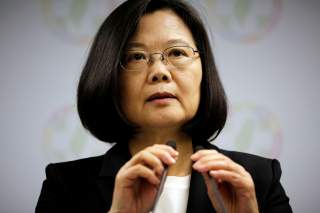Now Is Not the Time for a Referendum on Taiwanese Independence
U.S. policy on Taiwan isn’t about what is best for Taiwan, but rather what is in the U.S. interest.
Taiwan’s precarious position necessitates patience and a keen understanding of the position the island-nation occupies in the larger context of international relations. Appeals to emotion which disregard the interests of others—especially one’s allies—will not result in a strengthened position for Taiwan. Without question, the Taiwanese have every “right” to call for, and to hold, a referendum on sovereignty. And in an ideal world, that wouldn’t be an issue. But those who advocate such a course of action should be aware that, in the present context and in the far-from-ideal world that we actually inhabit, doing so would have serious, possibly disastrous, consequences for the 23.5 million people of Taiwan, not to mention the many more who could be dragged into a conflict should Beijing respond by force. Now is not the time for a referendum, which would threaten the ever-delicate balance that has been struck in the Taiwan Strait. The premium is on Taiwan continuing to buy time, and to use that time to consolidate its democracy, bolster its defense, while countering Beijing’s assaults on the “status quo” by intelligently engaging (and reassuring) international partners.
J. Michael Cole is a Taipei-based senior non-resident fellow with the Global Taiwan Institute and at the Taiwan Studies Program at the University of Nottingham, a research associate with the French Center for Research on Contemporary China, and chief editor of Taiwan Sentinel.
Image: Reuters

